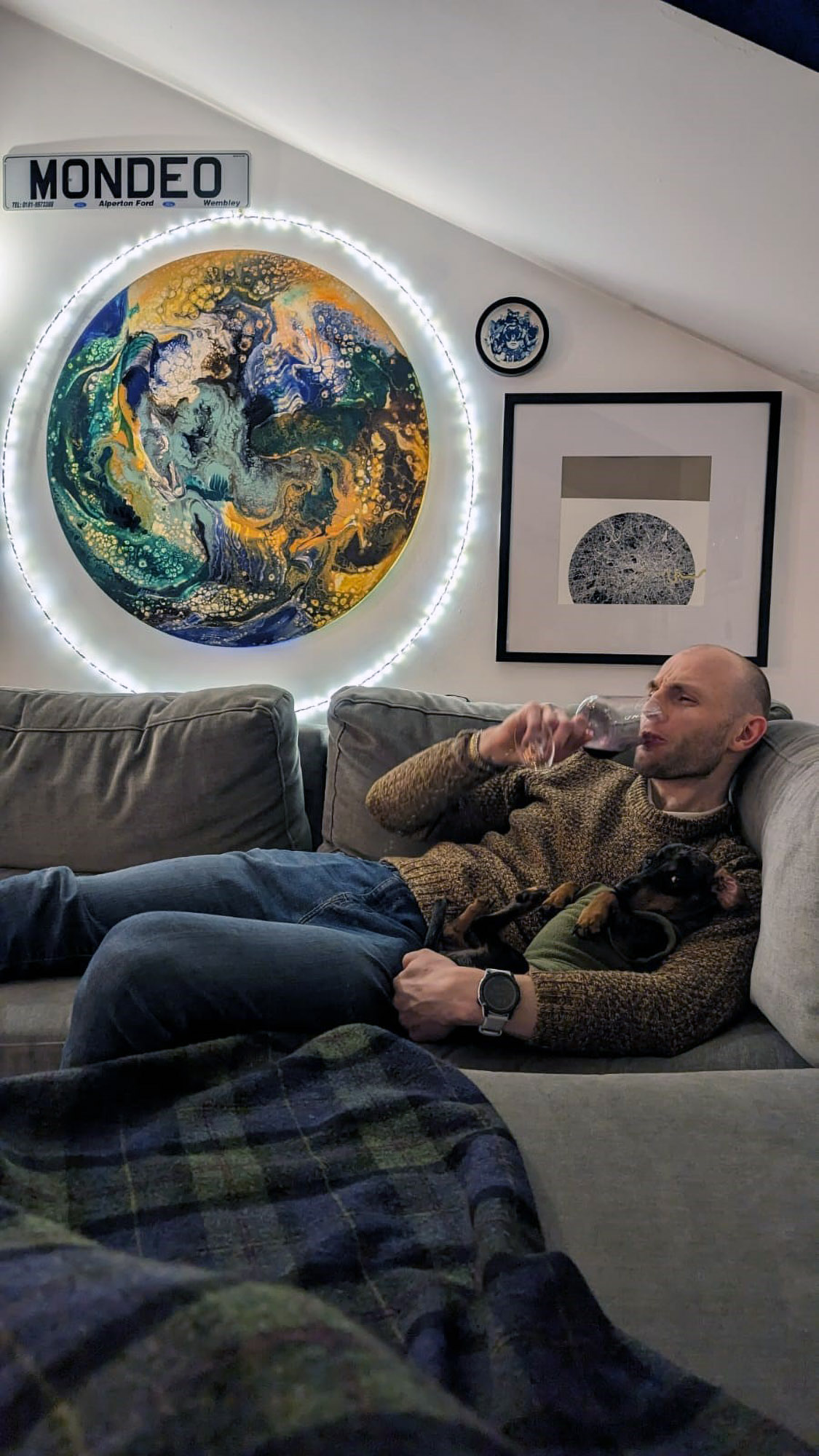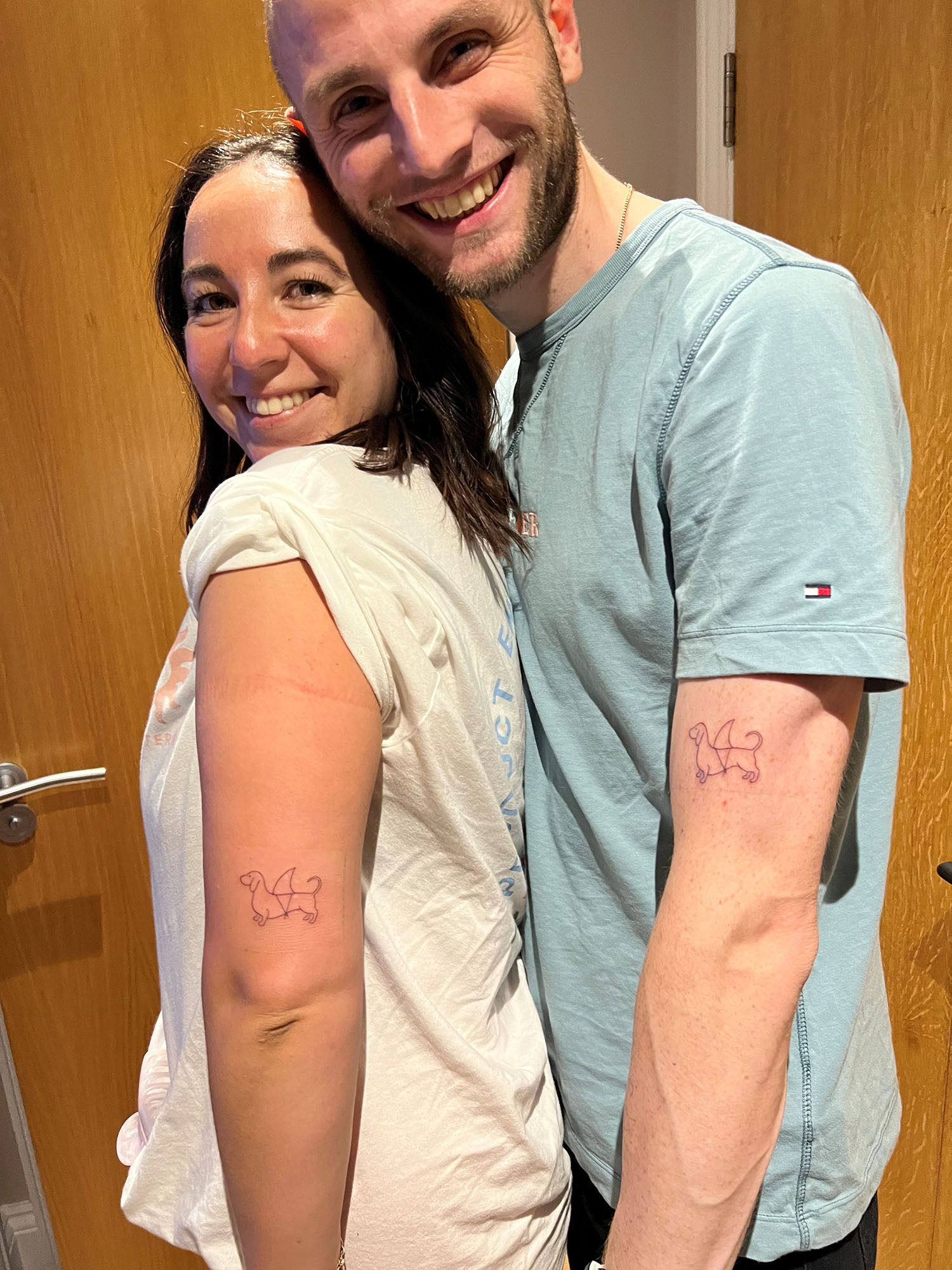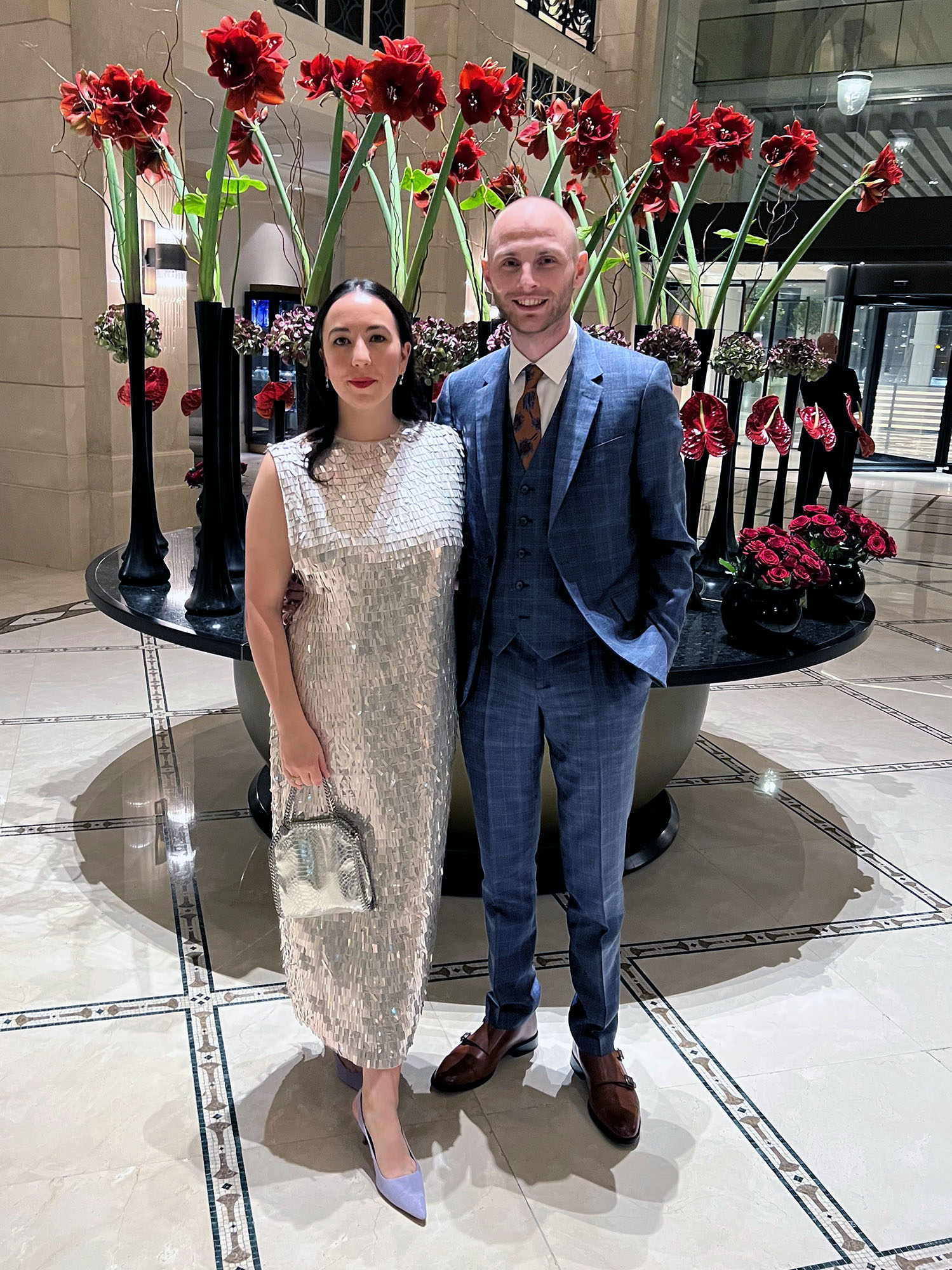Stories of Success – Dan Godley
Dan Godley is back to share his first cancer-free milestone with you all.

The last time I wrote for Pancreatic Cancer Action, the situation with my cancer was volatile. In the post, I described how the tumour had wrapped itself around a major artery and how I had been told that chemotherapy ‘really needed to work’ to give me a chance at long-term survival.
Chemotherapy seemed to be having an impact, but it was still to be seen if I would be offered surgery or not. Things felt bleak, as they often do with pancreatic cancer. The success stories are sparse, so much so that it feels like there are none at all. There are stories out there, though. Ali Stunt, the founder of this brilliant charity, is proof of that. Therefore, this charity is built on success. And, so far, I’m glad to say that I can put myself in that category too.
I started chemotherapy in November 2021, only two weeks after my diagnosis. Twelve sessions of Folfirinox later, the CT scans presented a tepid picture. The treatment had not done what the oncology team had hoped it would. As far as the team could see, it hadn’t worked. The tumour still had a major artery in its stranglehold. The hope had been that the chemotherapy would impact the tumour enough that it would pull away from the artery, allowing the skilled surgeons to remove it without risking my life. Still, I was 29 at the time and considered to be in good health, having spent the previous five years of my life running ultramarathons and training six days a week. The oncologist informed me that they had submitted my case to the surgeons at Manchester Royal Infirmary and that I’d be meeting with them shortly to discuss my options.
My surgeon was an intimidating man in a lot of ways. He was the first person I spoke to who I felt didn’t try to minimise the severity of the situation in any way. It was very black and white with him, and although it was scary to be told in such straight terms how bad things were, it was also relieving. I felt like there was clarity in his words.
“If you were under the care of nearly any other oncology team in the country, you would have been told that you aren’t suitable for surgery,” he said to me during our first meeting. “Not many people walk away from stage 3 pancreatic cancer. These scans don’t look encouraging.”

It was the first time I’d been told that my cancer was stage 3. The Christie, where I received treatment, said they didn’t like to stage cancer as it can give the wrong impression to the patient. They told me that someone can have a really good stage 4 or a really bad stage 1. The problem is that the layman assumes that the higher the staging number, the lower the chance of survival. This was their reasoning for not staging their patients. I agreed with their philosophy, but more because I was scared of what they may tell me if they did stage me. My intuition was correct – upon hearing that I was stage 3, I felt more scared than ever. Still, under such circumstances, sitting in front of this surgeon who I was trying to woo into taking my case on, I felt like I could perform better than ever. I knew I needed to instil some confidence in him and his team.
“I’d rather try than just let this kill me,” I said, and the surgeon nodded in agreement. That was the end of the meeting.
The plan was that the surgeon would open me up and see what was going on inside. He emphasised that a full removal looked impossible, so the plan was to try and kill as many of the tumour cells as possible using a relatively new technique called Irreversible Electroporation. This procedure involves taking two needles with an electric current running through them and inserting them into the impacted area. The intention is to kill as many of the cells as possible. It takes a few weeks before they know the extent to which the procedure has worked, so we wouldn’t know how successful it was for a while after the operation.
When I finally came around, the news was disorientating. After fourteen hours in surgery, the team had successfully removed the entire tumour. To do so, they had to remove a shopping list of items from my body: my entire pancreas, part of the stomach and liver, 3/5ths of my large intestine, my gall bladder, my spleen, and some bile ducts. They also had to reconstruct two major arteries. In total, the main surgeon had spent around ten hours working on me in the operating theatre, only taking a break during the vascular surgeon’s stint, who was responsible for reconstructing the arteries. These people are truly miracle workers. They had achieved something which had not even been spoken about. No one in my family could believe it. It would be a few days before I really understood what had happened. I remember sobbing in the hospital bed one evening whilst I was still in the ICU. The nurses flooded to my bedside and were comforting me, asking me what was wrong. I kept saying that I’d been told I was going to die and that I didn’t understand what had happened to me. All of them looked confused – “The operation was successful, Daniel.” I couldn’t wrap my head around it all.
The recovery from the surgery was difficult. I was initially in hospital for two weeks, but I was admitted twice more in the following weeks due to complications. I was also learning to live with diabetes during this time, which was hard to figure out alongside everything else. In those first few weeks, I felt scared to eat because I didn’t understand what it was doing to my body or what I should be doing to ensure things were OK. I’d read that poor diabetes control could lead to blindness – I wondered if eating was even worth it anymore.
After a few months of recovering from surgery, I underwent three months of mop-up chemotherapy. I thought this would be a breeze compared to Folfirinox. It wasn’t. After only being back at work for a few weeks, I had to go back on long-term sick leave again. The chemotherapy was making me feel sick constantly. There were ulcers in my mouth, I was struggling to get out of bed, and my blood sugar was difficult to control. The whole thing felt relentless, but I kept going. There was never any other option – I’d been granted a lifeline. If I didn’t throw myself at it and try, I’d be wasting the gift that the surgeons had given me.

And that brings me to today. My surgery date was July 15th, 2022. I guess that is technically the date that I got rid of my cancer, but I finished mop-up chemotherapy in February 2023 and received the all-clear scan around then. All my scans have been clear since. Although my health is very different to the way it was before I was diagnosed, I’m finding an equilibrium with it all. I’ve always shocked myself with how durable I can be. In each moment I live, I feel like I pay too much attention to the negative things, and the positive things slip me by. I only start to pick up on them when I reflect on where I was, and where I am now. I’m not sure when I moved into feeling competent with diabetes, but I mostly feel that way now. That doesn’t mean that I understand everything about it, or even that I always do a good job of controlling it. But I recognise that the aim isn’t to be perfect all the time. It’s about having the confidence to make decisions and learn from them, whether good or bad, to influence how I behave in the future.
The same thing applies to the trauma that these experiences have branded into my brain. For a while, I didn’t feel like there was any hope for me. I would read a news headline about a war breaking out somewhere in the world, and it wouldn’t impact me the way that it used to. I still felt sad that it was going on, but those things were happening in a world which had already started to abandon me. My fate had been sealed as far as I was concerned, I was just waiting for it to be delivered. It takes a while to break out of that mental cycle. There were a few months where even applying for a new job felt like I was tempting fate. People apply for new jobs because they want to improve their future in some way; that requires them to acknowledge that they have a future which needs improving. It is scary to do such a thing when you’ve been told that you’re unlikely to survive the next twelve months multiple times over the last few years.
Well… I did get a new job. Not only that, but I got married to the woman that I proposed to only minutes after receiving my diagnosis in King’s College Hospital in London. The woman who has supported me throughout this hellish journey – my wife, Anna. I’m also back to exercising again. My brother is a triathlon coach, and he’s been helping me get some of my old fitness back. I’ve been going to the gym twice a week and cycling four times a week. My wife and I have been on multiple holidays this year, and I’ve even spoken about my experiences at a few fundraisers for various cancer charities. One of those events involved being interviewed in front of an audience of nearly five hundred people. After I’d spoken, I received many messages from people who spoke about how my story touched them and who shared their own stories of grief, survival, and hope. It felt very special.

So, although it may feel like there are only bad stories to tell about pancreatic cancer, I am walking proof that there are positive stories out there too. I know a few other survivors of this cancer, one of them being a man who was diagnosed in his seventies and given eight months to live, only to have an incredibly effective course of Folfirinox, followed by a miracle surgery where his tumour was fully removed. He is a good friend of me and my family now and remains clear three years later. The stories are out there if you look for them, and they are worth looking for.
Sometimes, you have to believe that something is possible before it becomes so. I choose to believe that I will still be alive in a year, five, ten, or even twenty. Why not? As my surgeon said to me during my last visit before I was discharged from his care: “You’ve overcome all of the odds up to this point. Why would you stop now?”